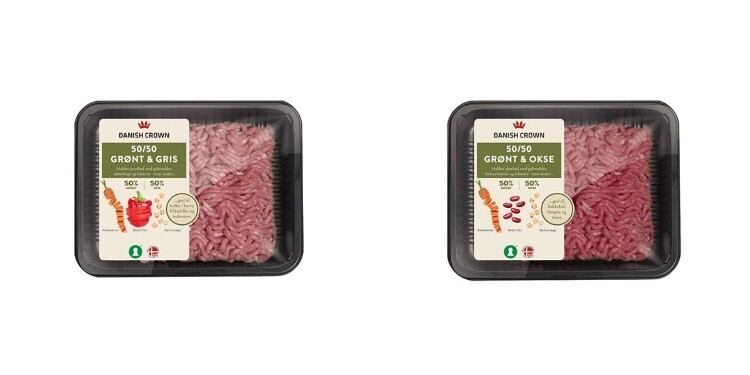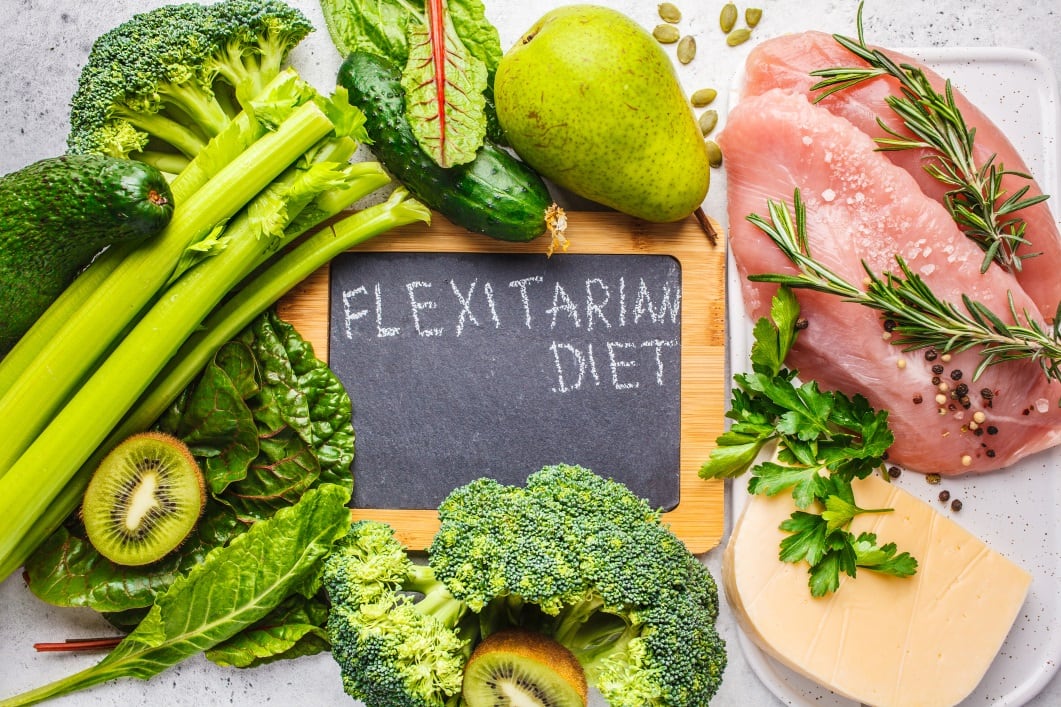Flexitarian consumers are characterised by a desire to reduce – but not eliminate – their consumption of meat and dairy products. When quizzed on their motives, many will point to the perceived health benefits of increasing vegetable consumption and the environmental benefits of reducing our reliance on livestock production.
Given that only a small proportion of the European population identifies as vegetarian or vegan, the flexitarian segment has proven an important driver for the thriving plant-based category. In particular, flexitarians who want to eat products that deliver the look and feel of meat are supporting interest in meat analogues – plant-based products that aim to mimic the taste and texture of their meaty counterparts.
But while the plant-based sector continues to grow at a strong clip, it does face some challenges as it tips to the mainstream.
Many people do not want to give up on their favourite everyday foods. And nor do they want to sacrifice the taste and nutrition benefits associated with meat and dairy.
The public is also increasingly scrutinising the often long ingredients lists in this category, with the need for complex recipes flying in the face of demand for clean labels that are viewed as more natural.
A report produced by consultancy New Nutrition Business suggests that so-called hybrid products, which are made with both meat and plant protein, could sit at the intersection of flexitarian’s good intentions and their desired product characteristics.
“A hybrid or blended strategy gives flexitarian consumers permission to indulge in favourite foods like meat, dairy and bakery – they can eat them and feel no guilt,” suggested Julian Mellentin, director of New Nutrition.
From meatballs with mushroom to bread with beetroot, hybrid products deliver traditional foods along with a significant portion – at least 20% – of plant-based ingredients. Many successful products, such as Fazer’s vegetable breads, go up to 30% and more, New Nutrition noted.
According to Mellentin's assessment, while hybrid products are certainly a ‘niche’ they are actually already earning premiums on-shelf of as much as 140%.
Plant power: What happens when the novelty wears off?
Mellentin believes that the development of hybrid products could be an important strategy for food manufacturers looking to cash in on plant-based interest in the longer term.
Mellentin said that while nutritional and environmental messages are an area of focus for plant-based producers, the main driver of the market is actually consumers’ quest for novelty. The top reason for consumers to trial plant-based products is ‘liking to try new foods’, which was identified as an important factor by 41% of consumers, the report suggested.
This could present plant-based manufacturers with a big challenge in the future. “Taste and texture are king and queen, nutrition is a way down the list. The consumer trial of plant-based meat substitutes (for example) is driven by consumers' 'love of the new'. It's the biggest motivation, above health and the environment," Mellentin told FoodNavigator.
“Once the newness has worn off, the meat substitutes will find their taste and texture challenges will continue to be a barrier to many flexitarians.”
The meat sector strikes back
Mellentin also indicated that hybrid products offer traditional meat producers a viable response to the threat posed by plant-based options taking market share.
“It's got the potential to evolve into a premium 'big niche' over the next five years. Most people still like the taste of meat. A plant-meat hybrid can give them permission to indulge in what they enjoy while also feeling good that they are getting more plants in their diet and even that they might be helping the planet,” he suggested.

One such meat processor taking this approach is Danish Crown. The group rolled out a line of 50-50 hybrid products to its domestic market last summer in a bid to appeal to shoppers who want to cut their meat consumption without losing the taste of ‘good Danish meat’.
“The concept is called 50/50, and is being launched in both a beef and pork variant. 50% of the content is meat of the same high quality that the Danes know from Danish Crown's products, while the remaining 50% are vegetables, which are of course also high quality,” said Finn Klostermann, CEO of Danish Crown Beef.
Founder and CEO of plant-protein start-up Planetarians, Aleh Manchuliantsau, agrees on the potential offered by this area of innovation. The ingredient supplier provides plant-based protein ingredients using up-cycled defatted sunflower seeds.
“Not everyone is ready to become a vegan, but when you make meat products healthier, customers appreciate it,” he believes.
Noting that there are ‘many folks who prefer old school meat’, he stressed that hybrids offer ‘healthy proteins from plant-based resources’, added fibre and ‘extra nutrients’ that you don’t get from either animal or plant-based burgers made from isolated proteins.
Manchiliantsau highlights a growing level of innovation in the hybrid space from larger corporations and the company was due to showcase its meat and sunflower burger formulation at Expo West in the US (prior to the show’s cancellation due to coronavirus). “Look at large folks like Tyson extending their 50/50 product line beyond just burger patties, Applegate's Meat+Mushrooms or Meat+Vegetable product line, or young disruptors on the market like Misfit mixing veggies with chicken,” he told FoodNavigator.
“We need to go further, beyond just animal or plant-based and learn how to use ingredients with all inherent nutrition.”
Plant-based remains centre stage
While there may be growing appetite for innovation in hybrid products, it is fair to stay that the food sector continues to focus its innovation efforts on developing more realistic and nutritious plant-based meat analogues.
As ADM’s George Perujo, director of business management specialty ingredients, observed, current demand for flexitarian products is supporting high levels of innovation. However, he revealed this can primarily be seen in the pure-play plant-based space.
“We are seeing consumers cut down on meat, which is mainly due to the rise of flexitarians – defined as those who remove meat from their diet at least three times a week. With a minimum of 30% of the UK population projected to be flexitarian in the next few years, there is a clear opportunity for new product development,” he told FoodNavigator.
“At ADM, we define the term ‘hybrid’ as a product that replaces around 50% of the meat with a plant-based protein. However, we are finding that the demand is for products that look and taste like meat but are either vegetarian or vegan.”




